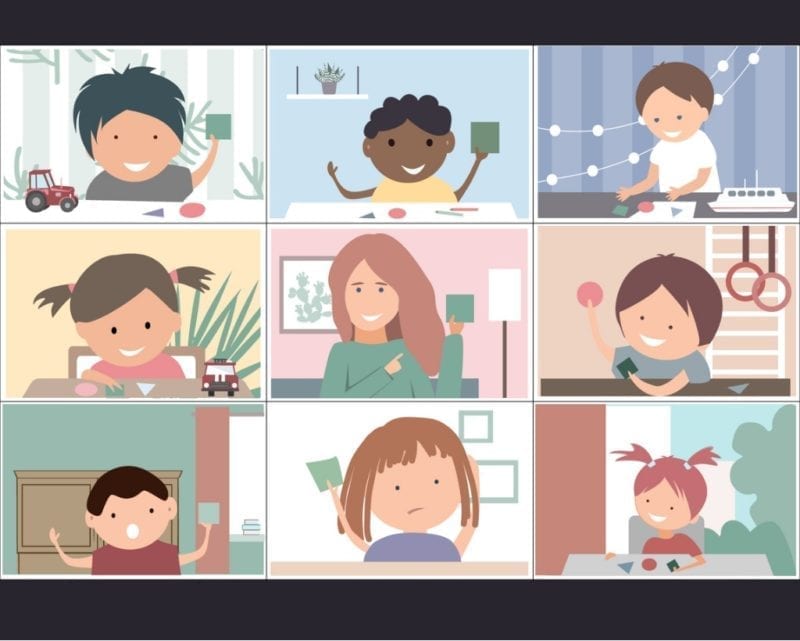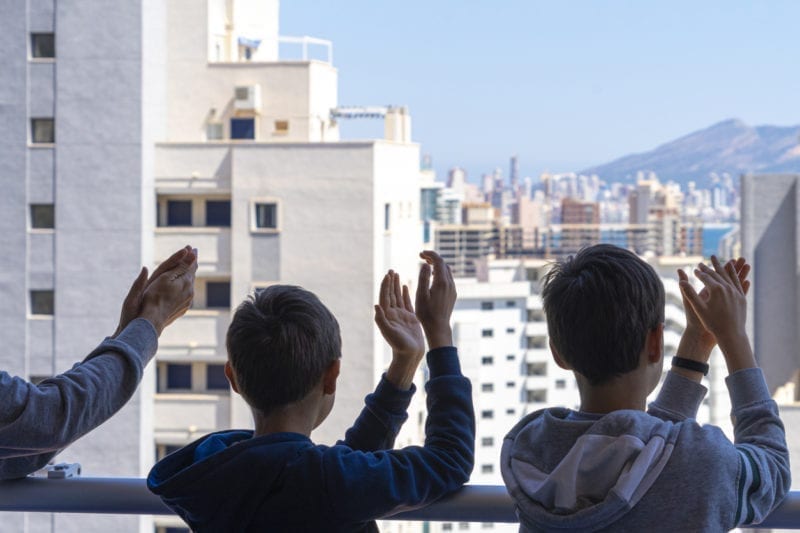Dear teachers,
What a whirlwind this year has turned out to be. If you’re like most educators, you’ve spent the past few weeks frantically trying to transition your class to online learning. Many teachers are uncertain when, or even if, they’ll be back in their classrooms with students this year. It is an unprecedented time for all of us, and it has never been clearer just how essential teachers’ unwavering patience and flexibility really are.
So first and foremost, thank you. There are many types of heroes in this global crisis, and teachers are some of the most valuable. Even so, it’s important to remember…
It’s okay to secure your own mask before helping others. 
Not only does this philosophy keep everyone safe, it also keeps you sane—which is crucial in times of uncertainty. By nature, teachers tend to put others (especially their students) before themselves. But making sure you’re taken care of first is not a selfish act; on the contrary, kids are looking to their role models to understand how they are supposed to react in this crisis. If they see you calm, collected, and confident, they’ll feel those things, too.
So whether it’s a glass of wine, a good book, or a virtual session with your therapist, don’t hesitate to collect your small comforts before diving into the unknown.
If you feel lost or unprepared, you’re not alone.
What you’re setting out to do is daunting, to say the least. You’ve been asked to reinvent the entire framework of your profession within a couple of weeks, all while helping your students work toward their learning targets and trying to keep calm during a global crisis.
It’s a lot, and we know it. But you don’t have to reinvent the wheel; you just need to think about the wheel a little differently, and you have millions of other creative brains on your side. Reach out to some other teachers for advice, support, and resources; after all, teachers know we’re better together.
Come back to your purpose.
As much as you may love the curriculum, the salary, and the glamour of teaching, odds are your reasons for becoming an educator were a bit more personal. We teach kids to focus on their learning objectives, and teachers are no different! In challenging times, we can orient ourselves back to our main purpose.
Maybe you love connecting to students on an emotional level; you can schedule individual video chats just to check up. Maybe your passion has always been literacy—you can start a virtual book club or make storytelling videos. Whatever your reason for entering the world of education, find a way to return to it. This can be a lighthouse for you as you adapt to a new normal.
Keep it simple.
I think we can all agree that life right now is complicated enough as it is; there’s no need to add more confusion than is necessary when it comes to online learning. Try to keep online assignments straightforward, with clear instructions and easy access (Google Classroom and Fun English for Schools are two excellent tools for keeping everything in one place). This way, students can focus on their learning, rather than spending frustrating time trying to figure out the technology. Parents will thank you for the simplicity, too!
 Flexibility is key (for you and your students).
Flexibility is key (for you and your students).
The way this global situation is unfolding looks different for every school, every teacher, and every kid. In addition to trying to reorganize an entire classroom structure, it’s important to remember the emotional toll that this situation is taking on everyone. Things simply do not feel normal, and that can be okay, if you allow the space for more change and new adjustments.
Things that work well at school will not necessarily work for every family at home, just as your routine at work will not be the same once you bring it home. When it comes to schedules, assignments, and learning goals, one size does not fit all families.
As the teacher, your role has shifted significantly; “classroom management” is no longer in your hands. All you can do is to provide your students and their families with the tools they need to be successful on their own, and to support them through it all.
If you can, try to offer several different choices when it comes to completing schoolwork at home. Some families will thrive on hands-on learning and physical projects, while others will be better suited to content videos or virtual assignments. Even within the classroom, there is no one-size-fits-all for learning, and families will be grateful for the opportunity to choose how they learn at home.
And remember:
If there’s anything teachers are experts at,
it’s adapting to the unexpected.
Lost teeth, new students, cancelled field trips, broken copiers—unexpected events often seem like the only constant in a teacher’s world. You’ve adapted to so much already—you can adapt to this, too, even if it seems impossible at first. And the silver lining?
We’re all figuring this out together.
Every last one of us has one thing in common right now—we are all just trying our best. And if we know anything about our students, it’s this: that’s all they expect from us.
As long as they know you’re there, doing what you can to support them (even from the other side of a screen), you’re doing your job and beyond; you’re keeping their world from being entirely upside down.
And for that, teachers, we applaud you.


